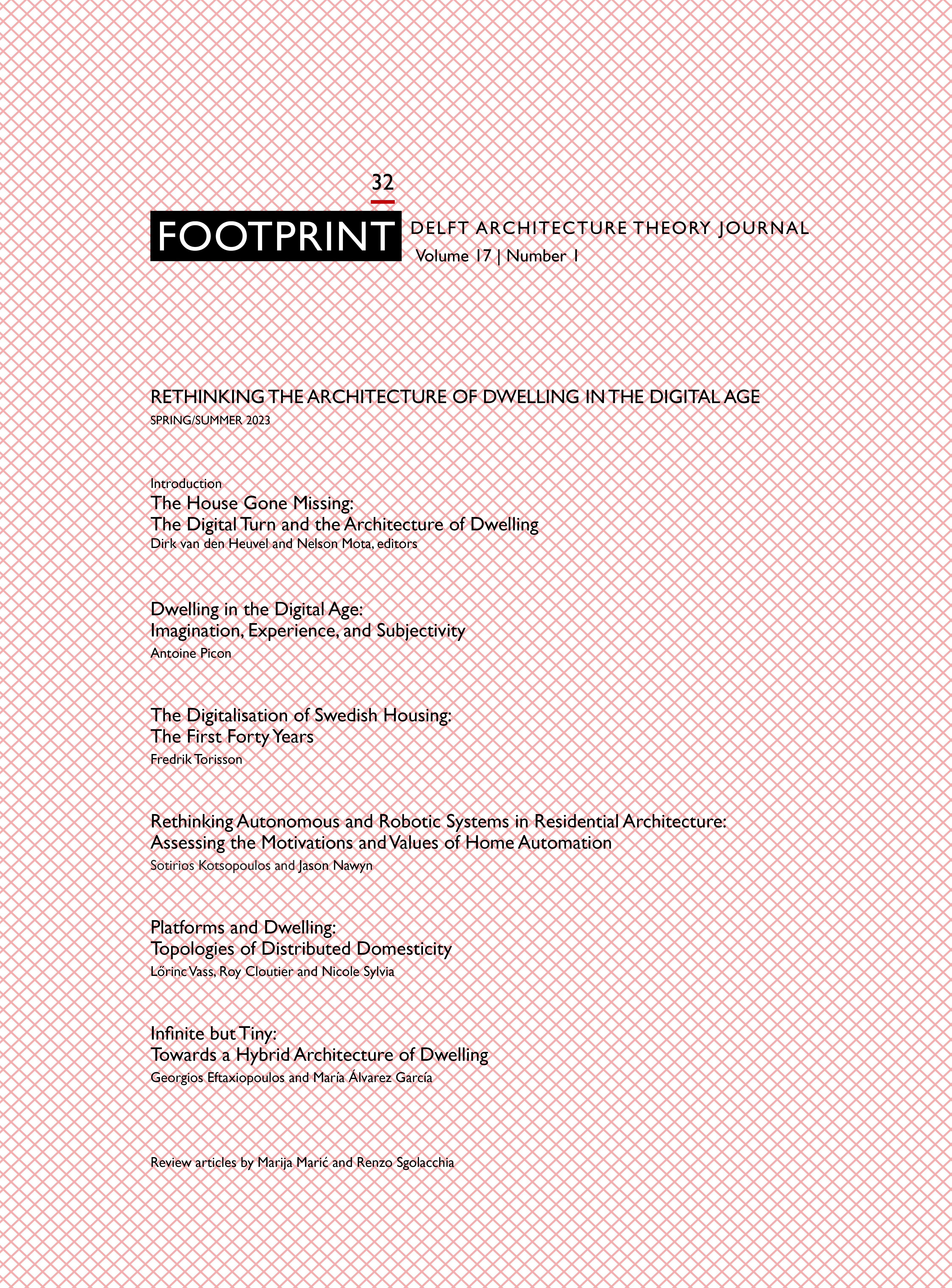Footprint 36: Who’s Stupid Now: Architecture, Intelligence and Transdisciplinarity
Stavros Kousoulas and Andrej Radman are editing Footprint 36, dedicated to ‘Who’s Stupid Now: Architecture, Intelligence and Transdisciplinarity’.
Footprint 36 seeks to explore architectural technicities that overcome poorly defined problems and reinvigorate (post)critical thinking, requiring a transdisciplinary mode of operation that breaks with the anti-intellectualist tradition of specialisation, professionalisation, and knowledge fragmentation. Rather than focusing on the essentialist question of what architectural intelligence is, Footprint 36 is interested in the pragmatics of how it occurs, who institutes it, and through which technicities it is archived and disseminated. This call is open for both full articles (6000–8000 words) and review articles or visual essays (2000–4000 words). Authors of research articles are asked to submit their full contributions on Footprint’s online platform before 31 March 2024. Authors interested in contributing with review articles or visual essays should contact the editors before 31 March 2024 with an extended abstract of their proposal (500 words).
Full articles will go through a double-blind peer review process, while the review articles will be evaluated by the editors. Footprint 36 will be published in the spring of 2025.
Read more about Footprint 36: Who’s Stupid Now: Architecture, Intelligence and Transdisciplinarity


